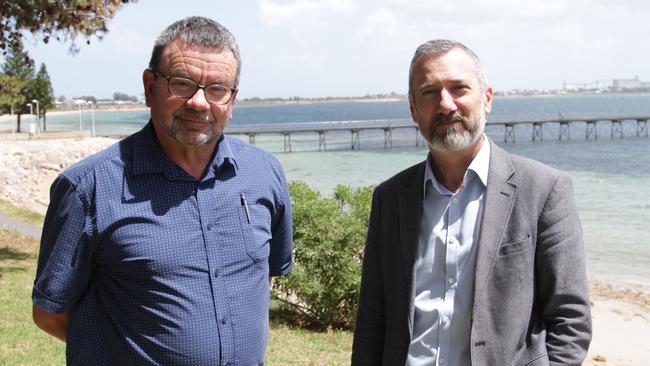Little agreement on the ‘benefits’ of cashless debit card
Fewer than 700 out of more than 13,000 welfare beneficiaries forced on to the cashless debit card have remained subject to income management after Labor abolished it.

Fewer than 700 out of more than 13,000 welfare beneficiaries forced on to the cashless debit card have remained subject to income management after the Albanese government abolished it.
Figures show about 13,700 people were placed on the card in South Australia, Western Australia and Queensland before it was scrapped by Social Services Minister Amanda Rishworth.
About 700 remain on the card, with up to 80 per cent of their welfare benefits quarantined for essentials such as food and clothing.
Another 4000 people in the Northern Territory remain on the card, and their arrangements have not changed.
The flight away from the card shows how unpopular it was with many welfare beneficiaries, but has raised deep concerns within communities about the impact of some vulnerable and substance-addicted people getting access to their full benefits in cash.
Ms Rishworth on Friday announced a new SmartCard income management program, which quarantines up to 50 per cent of welfare benefits, but only on a voluntary basis.
The card, which cuts out Indue, the third-party provider of the CDC, will become operational on March 6 – five months after the old card was abandoned.
In Ceduna, in remote SA, only about 60 people of the 700 who were on the card remain on income management.
“I’ve visited Ceduna since becoming minister on two occasions and it is important to note there are many views, including from the local police, about the challenges faced in the town,’’ Ms Rishworth said. “When it comes to the evidence, however, there was no evidence the cashless debit card made a difference to some of the difficult issues that exist.’’
Two Auditor-General inquiries and one study by the University of Adelaide had found it was not possible to prove the card had succeeded in reducing social harm.
More than a dozen members of the Ceduna community told The Weekend Australian that anecdotal evidence clearly showed the card reduced public drunkenness and anti-social behaviour – the visible signs of dysfunction and substance abuse.
Ms Rishworth acknowledged this in an interview in 2019, when she told ABC Adelaide: “There is anecdotal evidence coming from Ceduna saying that it’s helped but of course we need community consent as well’’.
The government is giving almost $50m for additional drug and alcohol treatment services in the communities where the card has been withdrawn.
“I want our solutions to be evidence-based and there was no evidence the cashless debit card worked,’’ Ms Rishworth said.
Opposition social services spokesman Michael Sukkar said Labor’s “ideological decision’’ to scrap the card was “already leading to a tsunami of drugs and alcohol in vulnerable communities”.
“We know that this alcohol and drug-fuelled dysfunction is also having the devastating impact of more abuse and neglect of women and children,’’ he said.
“The Albanese government – driven by the same extreme left-wing ideology which oversaw the removal of alcohol bans in Alice Springs – has plunged CDC communities around Australia into the same kinds of alcohol and violence-fuelled chaos as the NT.”
Ceduna Mayor Ken Maynard and CEO Tim Coote said their town had become embroiled in a political debate, but was focused on finding ways to best address the social harms which had been entrenched for decades.
“Alcohol is obviously a problem and like any addiction it’s a very sad thing,’’ Mr Coote said.
“A lot of work was done previously to be a site for the CDC and numerous organisations had advocated hard for it. We are looking at what the next steps are going to be and the reasons why people are abusing alcohol.’’
Mr Coote said the abolition of the card had given the community renewed focus and energy to tackle the social harm. “There is an expectation that we don’t want to lose that momentum,’’ he said.
Mr Maynard said he believed things had “settled down’’ since the summer.








To join the conversation, please log in. Don't have an account? Register
Join the conversation, you are commenting as Logout